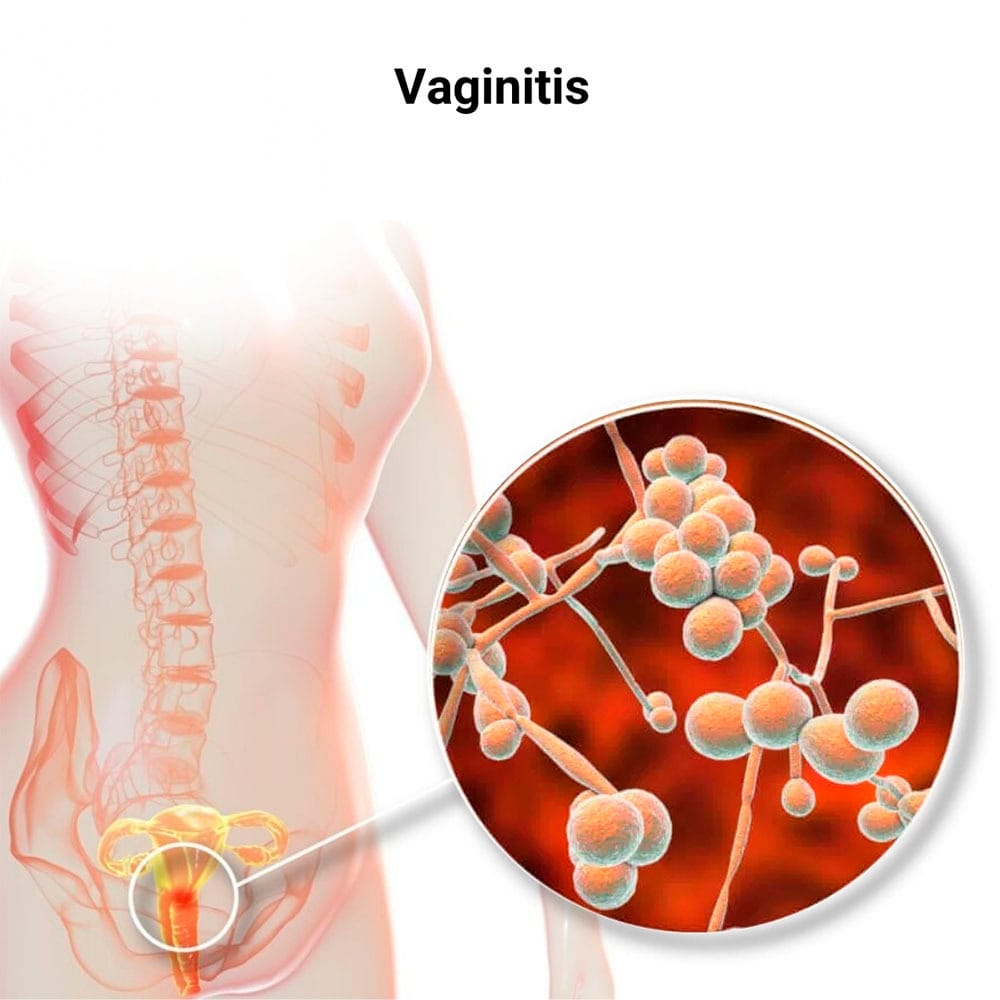What Is Vaginitis?
 Vaginitis is a condition in which your vagina becomes inflamed often because of yeast, bacterial growth or hormonal imbalance. It’s a distressing condition, causing pain and discomfort. It also disrupts daily life, sexual relations and generally lowers your quality of life. Vaginitis is a treatable condition with the right interventions and lifestyle changes.
Vaginitis is a condition in which your vagina becomes inflamed often because of yeast, bacterial growth or hormonal imbalance. It’s a distressing condition, causing pain and discomfort. It also disrupts daily life, sexual relations and generally lowers your quality of life. Vaginitis is a treatable condition with the right interventions and lifestyle changes.
Cohen Medical Practice (CMP) in Midtown New York City offers effective solutions for vaginal health issues including vaginitis. This team of gynecologists and surgeons led by Dr. Felix Cohen delivers comprehensive and personalized treatment for each case. You’ll have the best care you can get in their state-of-the-art facility.
When Should I Suspect I Have Vaginitis?
Vaginitis symptoms are prominent and quickly recognizable. But they can also show up in other feminine health issues, so it’s important to see an experienced gynecologist to differentiate between them. Recognizing these symptoms also enables quick intervention and effective treatment.
One of the most prominent symptoms of this condition is swelling and redness of the vagina or vulva. You also experience soreness and a burning or itching sensation in the vagina.
Other symptoms include:
- Abnormal discharge that might be thick, yellowish or white
- Unpleasant smell
- Frequent urge to urinate
- Burning sensation when urinating
- Lower abdominal pain and cramping
- Painful sex
Why Do I Have Vaginitis?
There are certain factors that make you more vulnerable to vaginitis. Unprotected sex with multiple partners could expose you to various pathogens. You’re also likely to have this condition if you’re using hormonal birth control. Hormonal changes during pregnancy and menopause also raise the risk of developing vaginitis.
You increase the likelihood of developing vaginitis if you wear tight clothes and use harsh soaps and douches.
You can have vaginitis because of one or a combination of reasons, including:
- Excessive bacterial growth in your vagina, called bacterial vaginosis
- Yeast infections
- Hormonal imbalance, which often results as an imbalance of estrogen levels
- Trichomoniasis, which is a sexually transmitted disease
- Allergic reactions to douches and soaps
- Poor vaginal hygiene
How Do I Confirm if I Have Vaginitis?
You need a comprehensive gynecological exam and laboratory tests to confirm if you have vaginitis. These diagnostic tests differentiate vaginitis from conditions that manifest similar symptoms including urinary tract infections and vulvitis. CMP doctors offer several diagnostic tests and procedures to determine if you have vaginitis.
They use a combination of tests that may include:
- A physical exam to assess the vagina, vulva and cervix for inflammation
- Culture tests to identify bacteria and yeast infections
- Wet mount for a microscopic exam of vaginal discharge for bacteria
- pH test to determine acidity levels in the vagina
- Pap smear test to rule out cervical abnormalities
- Sexually transmitted infection (STI) testing to rule out common STIs like gonorrhea
What Are the Long-Term Risks of Untreated Vaginitis?
Remaining untreated for vaginitis makes you vulnerable to serious long-term risks, including infertility. One of the most serious complications is pelvic inflammatory disease, which is a bacterial infection that causes chronic pelvic pain. Vaginitis also damages the reproductive organs with scarring, elevating the risks of infertility.
Other long-term risks you may develop if you don’t receive appropriate treatment in time include:
- Emotional distress and eventually depression
- Chronic pain
- Degraded sexual life
- Elevated risks of contracting STIs including HIV
What Treatment Is Available for Vaginitis?
Effective treatment for vaginitis depends on the underlying cause. Your CMP gynecologists first ensure that you have an accurate and confirmed diagnosis to determine the best personalized treatment plan.
Your doctor may prescribe a combination of drug and non-drug treatment options, which may include:
- Antibiotics to treat bacterial infections including bacterial vaginosis
- Antifungal drugs like fluconazole or clotrimazole to treat a yeast infection
- Antiparasitic drugs like metronidazole to treat trichomoniasis
- Topical creams or suppositories to ease burning and itching sensations
- Hormonal therapy like estrogen cream or vaginal rings to restore optimal hormonal balance
Vaginitis recurs if you don’t complete your drug prescription. It also recurs if the underlying cause isn’t addressed appropriately.
How Can I Prevent Vaginitis?
Lifestyle changes are key to ensuring you have the proper hygiene and the right balance of healthy bacteria to maintain your vaginal health.
Your CMP doctor makes recommendations to prevent vaginitis that include:
- Practicing good vaginal hygiene using proper wiping and washing with gentle soaps
- Wearing breathable clothes and underwear
- Avoiding known allergic products like scented soaps and perfumed tampons
- Eating foods rich in probiotics such as yogurt and kefir to encourage healthy bacteria
- Drinking plenty of water for optimal vaginal pH and flushing of bacteria
- Refraining from unprotected sex with new partners
Cohen Medical Practice (CMP) is a trusted medical provider for effective treatment of vaginitis and other gynecological problems. The knowledgeable and experienced team also has the necessary medical facilities to diagnose a host of various feminine health conditions. Contact Cohen Medical Practice (CMP) today to get the medical attention you need to restore your optimal vaginal health.

